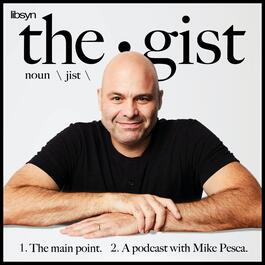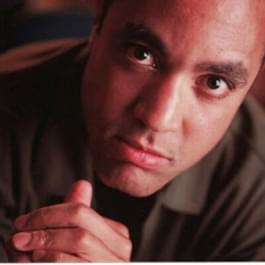
The Gist
For thirty minutes each day, Pesca challenges himself and his audience, in a responsibly provocative style, and gets beyond the rigidity and dogma. The Gist is surprising, reasonable, and willing to critique the left, the right, either party, or any idea.
Show episodes
Mike Pesca digs into the vault for two 2017 interviews exploring the "ground game" of the New York stand-up scene and the "ad hominem screech" of early outrage culture. Dan Soder discusses his transition from a hard-drinking youth to a maturity fueled by caffeine and cannabis, admitting that his iconic Russian accent b
Rosebud Baker explains why motherhood is the most political act of her life and how she handles breastfeeding pressure by claiming she's "raising her daughter autistic" with formula and vaccines. The SNL writer joins Mike Pesca to discuss her transition from the "joke-heavy" homework of her first special to the convers
Comedian Robby Hoffman explains why she treats complaining as "enjoying"—and why her Depression-era instincts make her shakier during good times than disasters. Her approach to stand-up is visceral rather than cerebral: she doesn't remember the bit about the woman closing the airplane bathroom door, she replays the mov
Oxford-educated archaeology student turned freestyle sensation Chris Turner joins Mike Pesca to explain how his "British period" of deadpan one-liners evolved into the show-stopping rap flow that now defines his Comedy Cellar sets. Turner discusses the "evolutionary advantage" of not knowing the rules of hip hop as a t
Michelle Buteau explains why she is the "achievable Beyonce" for government workers and how her history editing grim news footage at WNBC led her to a record-breaking comedy career. Her new special, A Beautiful Mind, marks her as the first woman of color to headline Radio City Music Hall—a feat she attributes to the sa
Actor and comedian T.J. Miller explains why a traumatic brain injury is his improvisational "cheat code"—and how a 2010 surgery for an arteriovenous malformation (AVM) in his right frontal lobe fueled a career of manic chaos. Miller discusses the "invisible disability" of brain surgery and the high-stakes gamble of a 1





